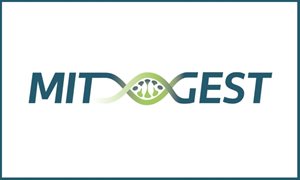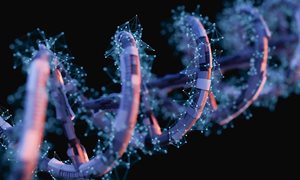
Together with colleagues from the MRC-Mitochondrial Biology Unit (University of Cambridge), Tom Schirris, theme Metabolic disorders, published a research article entitled “Characterization of drug-induced human mitochondrial ADP/ATP carrier inhibition” in Theranostics.
An increasing number of commonly prescribed drugs are known to interfere with mitochondrial function, causing cellular toxicity, but the underlying mechanisms are largely unknown. Although often not considered, mitochondrial transport proteins form a significant class of potential mitochondrial off-targets. So far, most drug interactions have been reported for the mitochondrial ADP/ATP carrier (AAC), which exchanges cytosolic ADP for mitochondrial ATP. However, these claims have never been validated and a simple, direct model system to evaluate and compare drug-induced AAC inhibition is lacking. Here, we provide a characterization of the human AAC1 and demonstrate its relevance to study drug-induced inhibition. Our work also paves the way to study many other mitochondrial transport proteins that could be relevant drug off-targets. Consequently, these analyses will eventually provide insights in the role of mitochondrial transport proteins in drug-induced mitochondrial dysfunction and will thereby contribute to the development of drugs with an enhanced safety profile.
Related news items

Hans Spelbrink is beneficiary of the MITGEST Doctoral Network which receives 2.6 million euros funding (PhD positions available)
27 September 2022EU has granted the new Doctoral Network “MITGEST” (Quality Control of the Mitochondrial Gene Expression System in Health and Disease), of which Radboudumc is one of the partners, with 2.6 million euros of funding under the Marie Sklodowska-Curie Actions.
go to page
Towards a better understanding of Leigh Syndrome pathology and intervention published in Brain
8 December 2021 Melissa van de Wal and colleagues recently published a comprehensive review in the journal Brain on how Ndufs4 knockout mouse models have been used to unravel the pathomechanism of Leigh Syndrome. go to page
New genetic defect links cell biology and protein glycosylation
10 November 2021 Peter Linders, Dirk Lefeber and Geert van den Bogaart together with international colleagues have recently reported on novel cell biological insights, by identifying a genetic disorder in syntaxin-5 which allowed to unravel a new mechanism regulating intracellular transportation. go to page
RIMLS awards call for nominations
19 October 2021 RIMLS awards several prizes to stimulate and honor our (young) researchers. Upcoming awards are Supervisor of the Year, Best Master Thesis, Best Publication, Best Image and more. Send your nominations now before 24 November 2021. go to page
Systematic analysis of short tandem repeats in 38,095 exomes provides an additional diagnostic yield
22 September 2021 Christian Gilissen and colleagues published in Genetics in Medicine about their work guiding the application of short tandem repeat analysis in clinical exome sequencing. go to page
